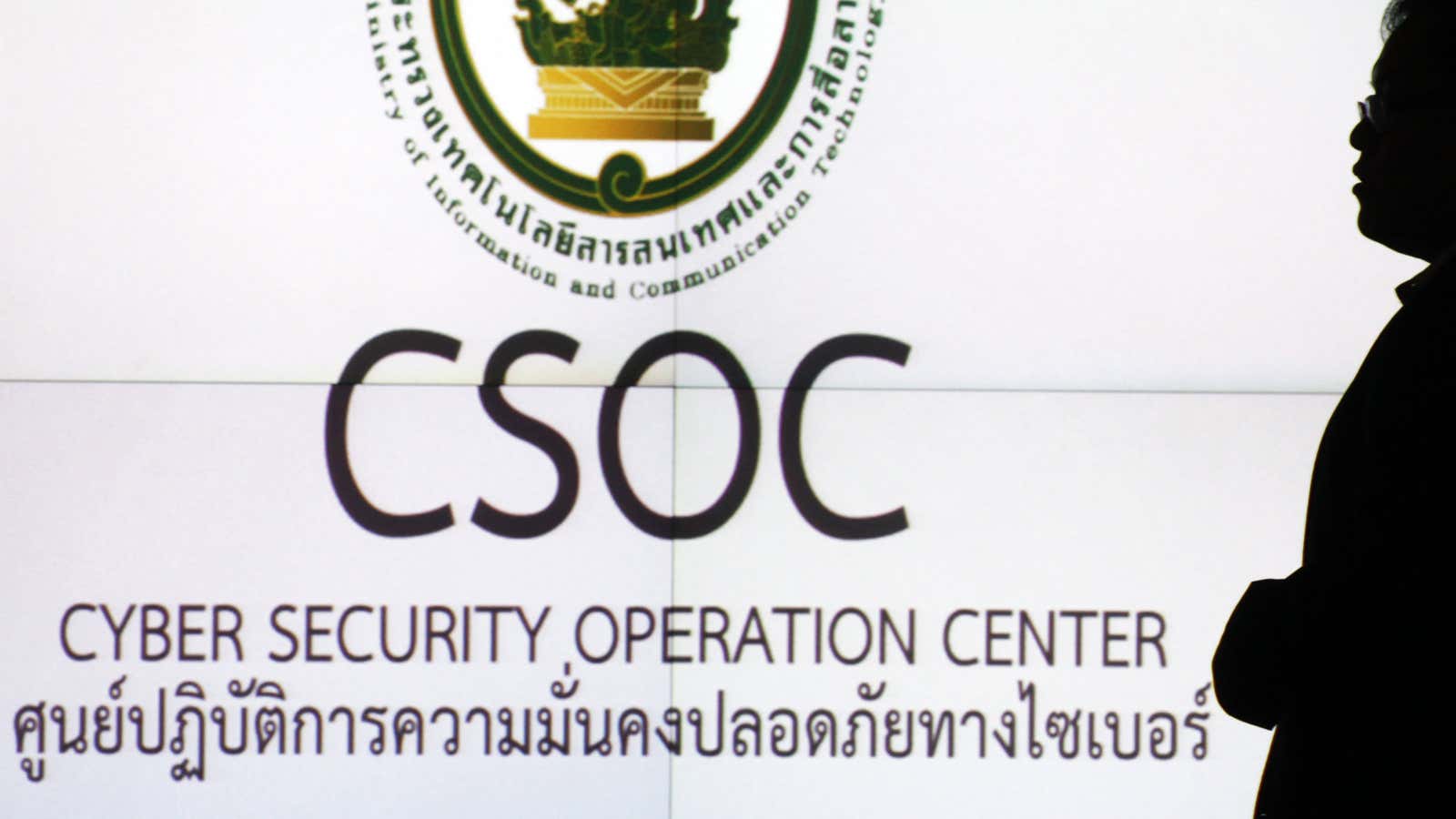Thailand is home to some of the world’s most enthusiastic social media users, and they briefly cried out in anguish when the country’s military junta shut down access to Facebook this afternoon.
Access was restored about 30 minutes later, and Facebook is available in Thailand as of 6pm local time. But junta officials are expected to meet tomorrow with social media companies, including Twitter and Instagram, to “ask for cooperation” in blocking messages that are critical of the coup or attempt to organize protests against it. Judging by the role that social media networks have played in recent political protests in countries ranging from Iran to Tukrey to Egypt, the junta is unlikely to get much help.
“Right now there’s a campaign to ask for people to stage protests against the army so we need to ask for cooperation from social media to help us stop the spread of critical messages about the coup,” Surachai Srisaracam, permanent secretary of the Information and Communications Technology Ministry, told Reuters. The junta has blocked more than 100 websites in recent days, and the military has long maintained internet surveillance units to look for content that is deemed offensive to the country’s monarchy.
The acting government’s Facebook blockade looked haphazard, with reports that the service was still available on fixed broadband networks but blocked on 3G and 4G mobile networks. And even as Surachai confirmed the army’s move to Reuters, an army spokesman denied there was any intentional blockade to the New York Times, blaming the outage on a “technical glitch.”
Thai TV stations, newspapers, and radio stations have been heavily censored by the coup leaders since they took power last week. Two print reporters were summoned to army headquarters earlier this week, chastising them for asking junta chief Prayuth Chan-ocha “inappropriate” questions about the timeframe for elections.
But even as traditional media outlets were stymied, a vigorous debate has taken place on social media. Thais opposed to the coup have used social media to organize decentralized “pop-up protests” in Bangkok.
If the junta ends up blocking Facebook and other social media sites, it will certainly face the prospect of users using widely available countermeasures. And it may end up alienating many Thais who are neutral about the coup, or would have actively supported it.
Update: Much of the commentaryabout the Facebook blockade is, ironically, taking place on Twitter:
